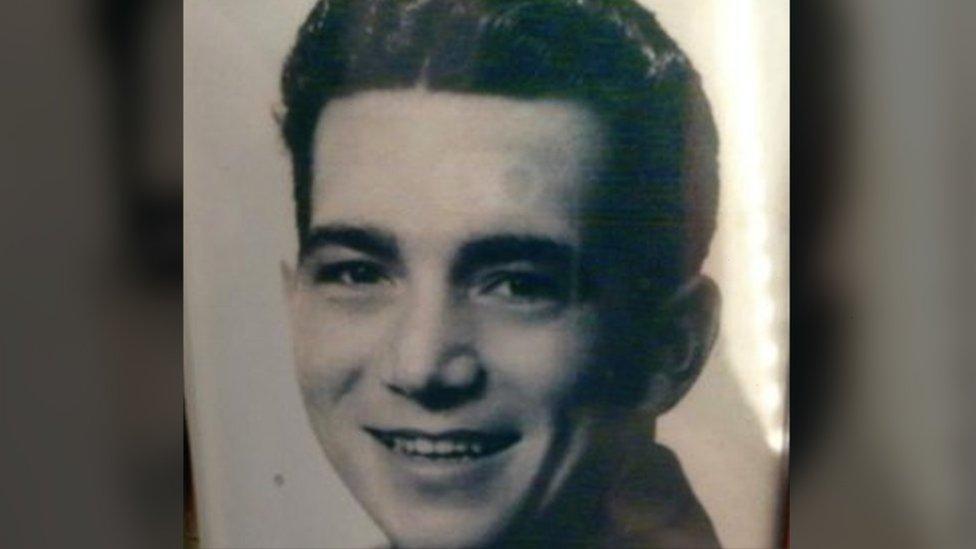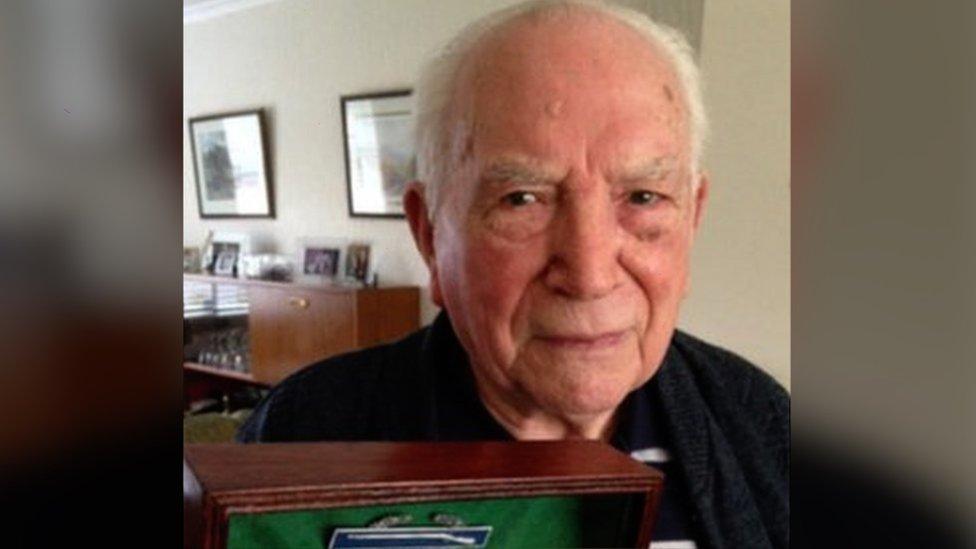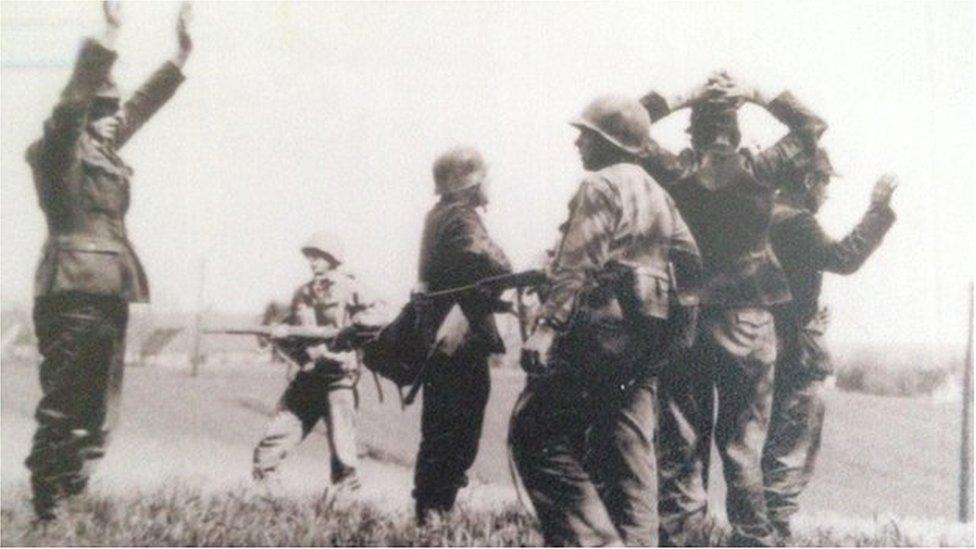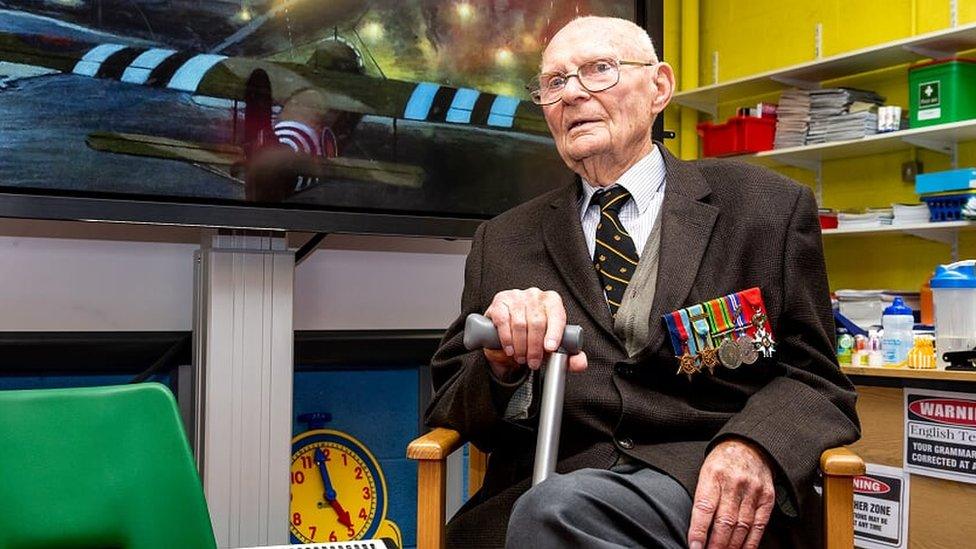Teddy Dixon: Northern Ireland WW2 veteran dies aged 100
- Published

GI Teddy Dixon served with the Rainbow Division of the US army
Teddy Dixon, one of Northern Ireland's last remaining World War Two veterans, has died aged 100.
Mr Dixon was born in New York but grew up in Northern Ireland after his family moved to Belfast.
Drafted to the US Army in 1944, Mr Dixon went on to help liberate 33,000 people from Dachau concentration camp in Germany.
The US Consulate in Belfast said it was mourning his death, remembering his service and "selfless heroism".

Allow X content?
This article contains content provided by X. We ask for your permission before anything is loaded, as they may be using cookies and other technologies. You may want to read X’s cookie policy, external and privacy policy, external before accepting. To view this content choose ‘accept and continue’.

Mr Dixon served in the 42nd Rainbow Infantry Division, landing in France in December 1944 before advancing to Germany in 1945.
In addition to liberating Dachau, Mr Dixon was involved in the recovery of a treasure trove of looted art stored in salt mines during the conflict.

Mr Dixon has been praised for his "selfless heroism" during World War Two
Speaking to BBC News NI in 2014 about his involvement with the mission he said he and the other men from his squad were simply told that they would be guarding German prisoners of war.
It turned out those prisoners were being sent to retrieve art looted by the Nazis and hidden in the local salt mine.
Every day for two weeks they took the prisoners into the mine, loaded up four small carts and pushed them back up the rails to the mine head.

Teddy Dixon (foreground) and comrades were pictured accepting the surrender of German soldiers
"It was fantastic to see all the cases piled up there. We had head lamps on us," said Mr Dixon, recalling the first time he saw the treasure.
"They were neatly stacked around the walls, heavily encased in wood."
His death comes less than a week after Bill Eames, one of the last surviving D-Day pilots, from County Fermanagh, died.
Mr Eames, who was friends with Mr Dixon, was aged 97.
- Published14 February 2014

- Published16 November 2020
